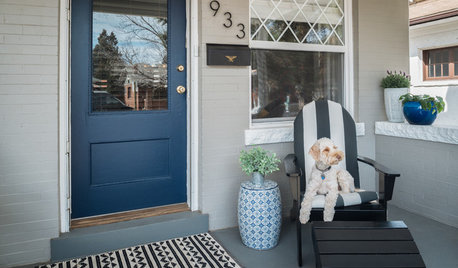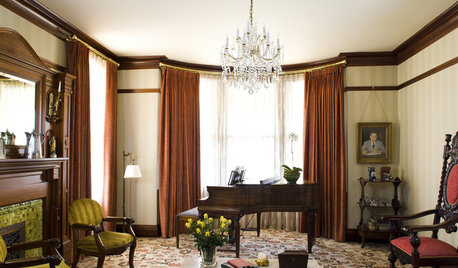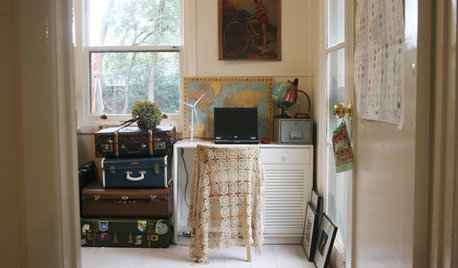Interested in what it's like to be a home-based tailor
A C
2 years ago
Related Stories

LIFE8 Ways to Tailor Your Home for You, Not Resale
Planning to stay put for a few years? Forget resale value and design your home for the way you live
Full Story
LIFEHouzz Call: What Makes Your House Feel Like Home?
Sometimes just one thing gives you that warm and fuzzy feeling. Let us know what it is for you
Full Story
FEEL-GOOD HOMEHow to Make Your New House Feel Like Home After a Move
Leave the chaos of relocating behind and start putting down roots with these 10 simple tips
Full Story
KITCHEN DESIGN3 Warm, Inviting Kitchens We’d Like to Come Home To
See how farmhouse-inspired touches cozy up Colonial, traditional and transitional kitchens
Full Story
ORGANIZINGWhat It’s Really Like to Work With a Professional Home Organizer
A pro organizer tackles 10 questions about how the real-life organizing process may differ from what you see on TV
Full Story
LIVING ROOMSBefore and After: 5 Revamped Living Spaces That Feel Like Home
See how designers make these living rooms more stylish, comfortable and welcoming
Full Story
GREAT HOME PROJECTSHow to Bring Out Your Home’s Character With Trim
New project for a new year: Add moldings and baseboards to enhance architectural style and create visual interest
Full Story
MOVINGMaking a Home Away From Home
Feeling like a stranger in a strange land? These tips can help ease the transition after a big move
Full Story
TRAVEL BY DESIGNHomes Away From Home: 6 Appealing International Bed-and-Breakfasts
Live like a local in a foreign land. These design-friendly B and Bs offer comfort and style for a wide range of budgets
Full Story
HOUZZ TOURSHouzz Tour: Nature Suggests a Toronto Home’s Palette
Birch forests and rocks inspire the colors and materials of a Canadian designer’s townhouse space
Full Story





Lars
c t
Related Professionals
Paramus Furniture & Accessories · Queens Furniture & Accessories · St. Louis Furniture & Accessories · Beverly Hills Furniture & Accessories · East Patchogue Interior Designers & Decorators · Hercules Interior Designers & Decorators · Morton Grove Interior Designers & Decorators · Charlotte Furniture & Accessories · Jacksonville Furniture & Accessories · Simpsonville Furniture & Accessories · Newton Furniture & Accessories · Fargo Furniture & Accessories · Pleasant Grove Furniture & Accessories · Clive Furniture & Accessories · Orange County Staircases & Railingsnicole___
c t
Michael Hilber